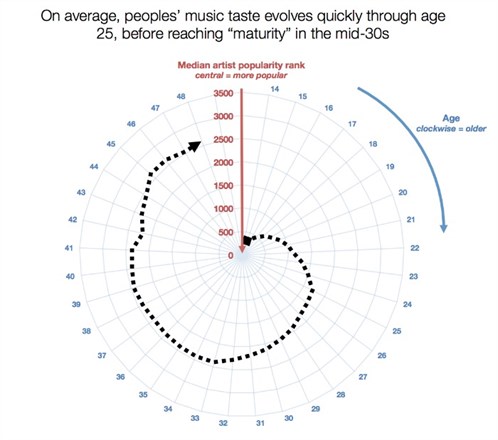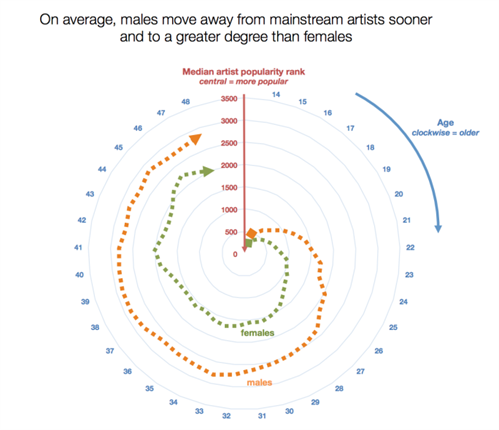Science explains why the older we get the less we like new music

Ever wondered why today’s music just doesn’t do it for you? A new research paper has discovered the reason why.
Titled Losing the Music: Ageing Affects the Perception and Subcortical Neural Representation of Musical Harmony, the study explored why we tend to engage less with new music, preferring instead to stick to what we listened to in our youths.
Manchester University’s Oliver Bones and Christopher Plack from the Chinese University of Hong Kong found that as we age, our brain’s ability to differentiate between different sounds declines.
They focused mostly on the difference between “consonant” (pleasant, harmonic-sounding) and “dissonant” (unpleasant, messy-sounding) chords. Pop music relies mostly on consonant chords, and it is these sounds which younger participants in the study found most enjoyable. Surprisingly, the older participants preferred dissonant chords, due to the fact that the difference between the two wasn’t nearly as distinctive as it was to younger ears.
“As we age, nerve cells in the brain become less able to represent rapid fluctuations in sounds,” Plack explains. “This may be why we become more entrenched in our particular music and less responsive to new ideas, or even in music generally.”
Another online study found that it’s actually around the age of 33 that our taste in music matures and we spend less time seeking out new tunes.

Surprisingly, this “taste freeze” occurs more in men than in women.

What do you think about these findings? What kind of music do you like to listen to these days? Share your thoughts with us in the comments below.
Related links:
6 iconic artists whose albums flopped
The surprising original names of famous bands
1970s: songs that defined a decade
